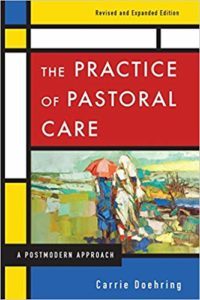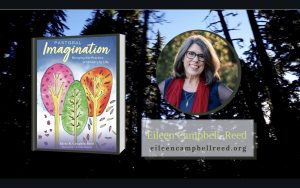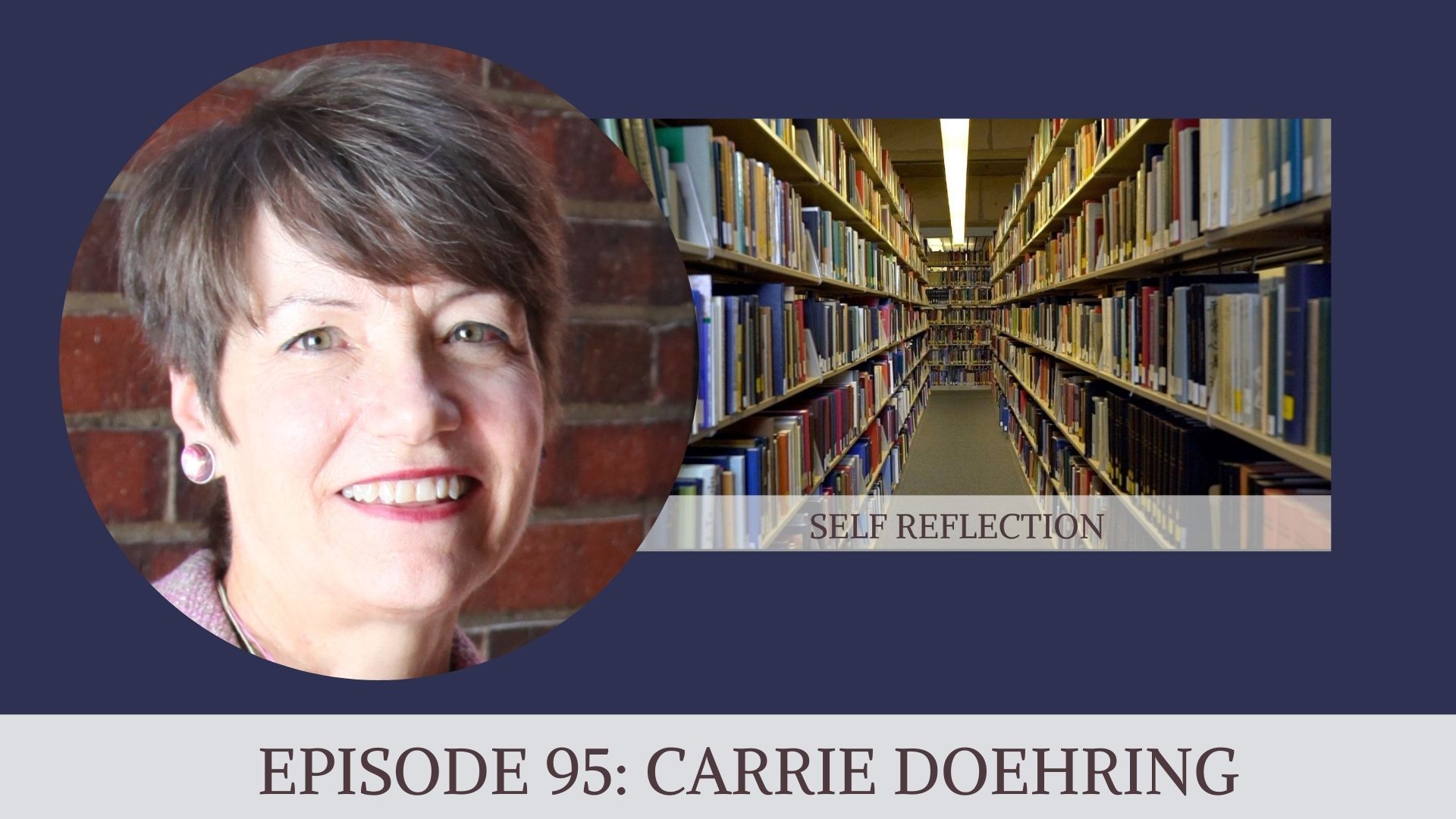Reflecting on our lives. Sounds easy, right? How about reflecting on your spiritual practices? And what about reflecting on losses and griefs? Or self reflection about the ways you care for people? Each of these forms of self reflection asks us to look honestly at ourselves. And this kind of reflection is a ingredient for the practice of ministry. In fact, it is critical for cultivating pastoral imagination.
In this week’s episode we want to dig a little deeper into the work of self-reflection for the practice of ministry by hearing more from Dr. Carrie Doehring.
Watch this this earlier episode of Three Minute Ministry Mentor (3MMM), in which we introduced you to the work of Dr. Doehring. She is Clifford Baldridge Professor of Pastoral Care and Counseling at Iliff School of Theology.
What forms of self reflection are most challenging for me?
3MMM Episode 3: Self Reflection from Eileen Campbell-Reed on Vimeo.
More on “Self Reflection” here:
video | blog | podcast
Learning in Practice with Carrie Doehring

Dr. Carrie Doehring is a veteran pastoral theologian and a pioneer in the pastoral work of trauma care and moral injury. She is also author of one of the most widely read text books in pastoral care today:The Practice of Pastoral Care, Revised and Expanded Edition: A Postmodern Approach
Not only does she have so much to offer, but Dr. Doehring also teaches commitments that resonate deeply with learning in practice that we value so highly here at 3MMM.
NEW DOWNLOAD!
Dr. Carrie Doehring Author Interview January 2021 3MMM
Self Reflection through Questions
One of our values at 3MMM is to invite learning by asking good questions. We love seeding the world with thoughtful and provocative questions. Have you asked yourself this question lately:
How can I become a more self-reflective pastor or minister?
A question for your Monday morning! How can I become a more self-reflective pastor or minister?
We'd love to hear your thoughts! pic.twitter.com/Bfc8mXhe5d— Three Minute Ministry Mentor (@3MinuteMin) January 25, 2021
Dr. Doehring asks really important questions as well. For example she is asking some thoughtful questions in the “Doing Theology in Pandemics” series (2020). The 50-minute video, sponsored by our friends over at Odyssey Impact, starts with this question: What is spiritual self care?
And she follows this question with another: What makes self-care spiritual? And a third question: How does spiritual care help?
Perhaps you want to learn from her responses to these question. If so, then we encourage you set aside a time for your own learning and self reflection. You can start with this teaching session.
Reflection on Traumatic Loss
Self reflection when it comes to examining our losses and griefs, especially the ones that come from a traumatic loss are …? Well, that kind of self reflection can be scary or overwhelming. Carrie Doehring is no stranger to personal loss or grief. Her young adult son died by suicide in 2018, and her spouse died unexpectedly in 2019. She is courageous to reflect publicly about navigating grief and finding ways to lament her losses.
Last year while I was emailing with her, Dr. Doehring sent this piece to me. “Searching for Wholeness amidst Traumatic Grief: The Role of Spiritual Practices that Reveal Compassion in Embodied, Relational, and Transcendent Ways.” It was not published yet, but fortunately it is available now. I commend it to you.
In this piece, Dr. Doehring, “argues that spiritual practices revealing compassion and benevolence in embodied, relational, and transcendent ways help people search for meanings that are flexible, integrated, and complex enough to bear the weight of suffering.” She knows how some losses truly require sturdy structure to hold the grief. In her case, sacred choral music allows her to feel held in “a relational web of love.”
What is helping me as I reflect on losses and grief that I carry today?
Coping through the Pandemic
Dr. Doehring tells a story of coping with the coronavirus pandemic in an article which she wrote for her local presbytery in Denver. Like many people, she worries about her mom during this season. And she, along with her sisters, have created the “Mom Squad.” They are caring for their independent mom at a distance. To do this, they call on all possible helpers. For example, they have the Pope, the premier of Quebec, and her physician all on the list.
I find this deep desire so relatable. I, too wish to keep my loved ones safe from Covid-19. And yet, distance makes this so challenging. And we also know something about using everything at our disposal to care for those we love, including our best creativity, collaboration, and humor.
In this article Dr. Doehring, asks and responds to yet another good question for reflection: What helps me cope? Certainly this is a question we are all asking during this long season of pandemic. One direction that she takes with the question is to share the idea of one’s “spiritual fingerprint.” Each of us, she says, responds our own life experiences, losses and social location, to the challenges that life deals us.
She puts it this way. “My ‘spiritual fingerprint’—my particular experiences of beauty and goodness, values and beliefs about suffering and hope—is shaped by childhood experiences of connecting with beauty through sacred choral music.”
What is my “spiritual fingerprint”?
Books by Carrie Doehring
 Throughout her writing Dr. Doehring draws on her training and experience in both psychology and the study of religion, as well as her work as a pastor to offer powerful insights and wisdom about giving care.
Throughout her writing Dr. Doehring draws on her training and experience in both psychology and the study of religion, as well as her work as a pastor to offer powerful insights and wisdom about giving care.
If you are hoping to work on deepening your skills and practice of pastoral care, then you will find so much to appreciate in her book The Practice of Pastoral Care: A Postmodern Approach. You can find out what other readers think about it here. And you can learn about the other books by Dr. Doehring as well.
++++++++++++
 Learn more about how self reflection is a so important for cultivating your pastoral imagination in Eileen’s forthcoming book, Pastoral Imagination: Bringing the Practice of Ministry to Life.
Learn more about how self reflection is a so important for cultivating your pastoral imagination in Eileen’s forthcoming book, Pastoral Imagination: Bringing the Practice of Ministry to Life.




